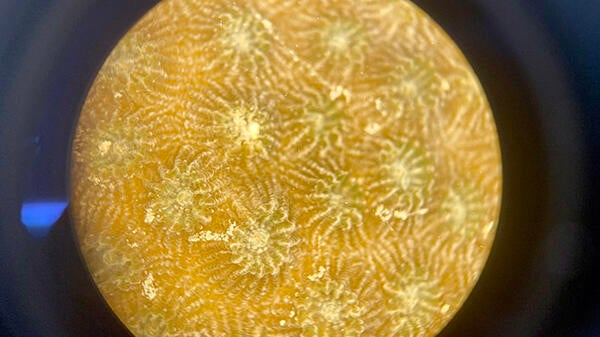After months of precautionary cancellations due to the pandemic, BIOS staff hosted several school groups on campus this June for marine science studies that complement public and private school curriculums.
Acting U.S. Consul General Tom Edwardsen Visits BIOS
June 27, 2021
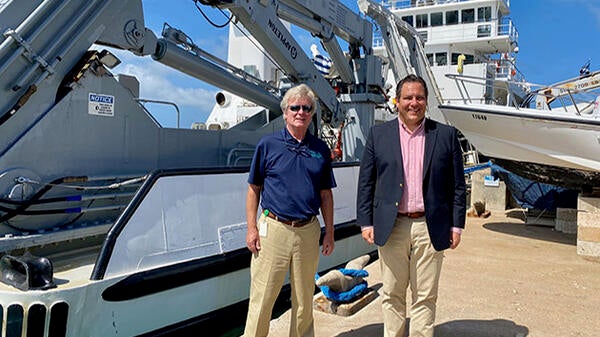
Acting U.S. Consul General Tom Edwardsen visited BIOS on June 22 for a tour of the Institute led by President and CEO Bill Curry. The two-hour tour gave Edwardsen, who is expected to remain in his post until this summer, an opportunity to learn about BIOS’s research and education programs.
Bermuda Ocean Prosperity Programme (BOPP) Celebrates Second Anniversary
June 15, 2021
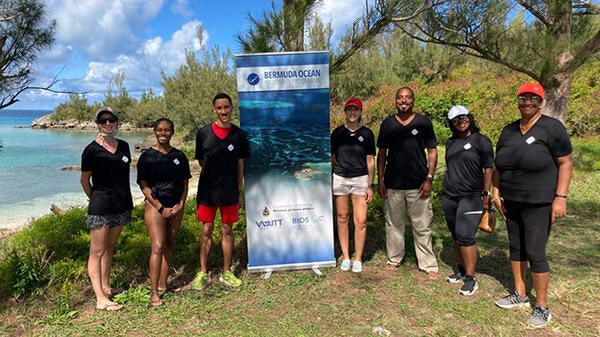
In 2019, BIOS joined efforts with the Government of Bermuda and the Waitt Institute to form the Bermuda Ocean Prosperity Programme (BOPP). This innovative partnership was designed to leverage the partners’ various planning, legal, advocacy, strategy, and scientific expertise to protect 50,000 square miles (90,000 square kilometers) within Bermuda’s marine protected areas to preserve marine biodiversity and ensure economic resilience for the island’s ocean economy.
Research at BIOS Leads to Undergraduate Thesis Prize at Princeton
July 31, 2021
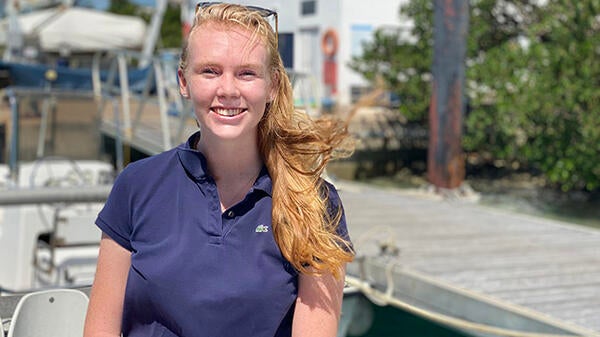
Emma O’Donnell, 22, graduated this past spring from Princeton University (U.S.) with a Bachelor of Arts in ecology and evolutionary biology, with high honors. Her undergraduate thesis, “One Fish, Two Fish: Measuring Patterns of Reef Fish Biodiversity in Bermuda Using Environmental DNA Metabarcoding,” was based on research she conducted at BIOS, and it earned her the Princeton Ecology and Evolutionary Biology Prize for Best Thesis in Ecology.
Pair of NASA Grants Awarded to BIOS Scientist
July 29, 2021
Earlier this year, Eric Hochberg, a reef systems ecologist at BIOS, was awarded two grants from the National Aeronautics and Space Administration (NASA) to continue lines of investigation stemming from the four-year NASA COral Reef Airborne Laboratory (CORAL) mission. Hochberg was principal investigator of CORAL (2015–2019), which utilized a state-of-the-art airborne sensor, called PRISM, to produce the first comprehensive assessment of reef condition for a large portion of the world’s reefs.
A Summer of STEM
July 28, 2021
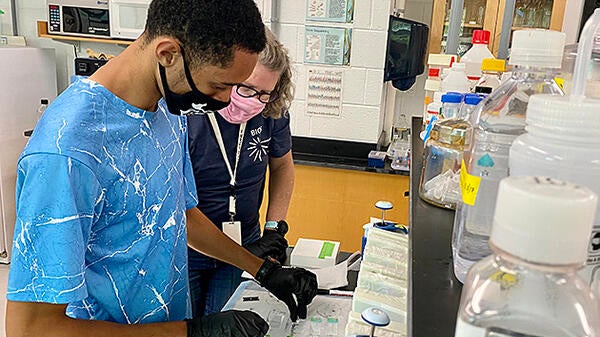
Each year BIOS selects a handful of qualified Bermudian students to participate in the Bermuda Program. The summer internship opportunity pairs participants with BIOS faculty and scientific staff to work on research projects in the fields of science, technology, engineering, and mathematics (STEM), with a focus on marine and atmospheric sciences.
New Robotics Test Pool at BIOS Sponsored by RenaissanceRe
July 15, 2021
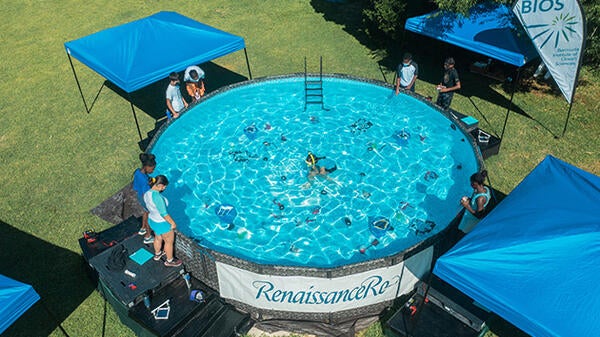
This summer, there is a new addition to BIOS: a 20-foot (6 meter) x 4-foot (1.2 meter) above-ground pool, dubbed the Underwater Robotics Innovation Test Pool. The pool is serving as a testing facility this summer for underwater robots, also known as remotely operated vehicles (or ROVs), as part of BIOS’s Mid-Atlantic Robotics IN Education (MARINE) program which is sponsored by RenaissanceRe.
The Synergies of Sargassum Seaweed
August 30, 2021
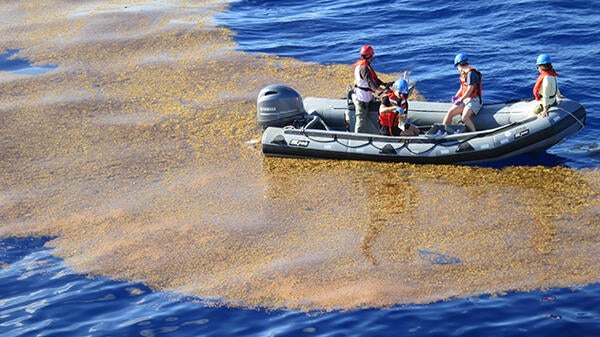
In early August, a team of researchers with the multi-year, multi-institutional BIOS-SCOPE (Bermuda Institute of Ocean Sciences – Simons Collaboration on Ocean Processes and Ecology) program completed their seventh research cruise aboard the BIOS-operated research vessel Atlantic Explorer. For four days, 13 scientists from eight institutions came together to study the unique microbial communities that develop in the Sargasso Sea during the summer, as well as the dissolved organic matter (DOM) they produce, consume, and redistribute throughout the water column.
New Explorations Abound for BIOS Ocean Science Camp
August 29, 2021
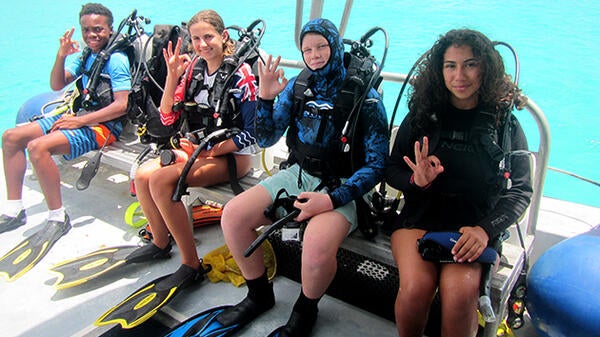
For two sessions this summer (July 19 to 23 and July 26 to 28), 19 students aged 12 to 15 got to experience Bermuda’s marine environments and learn the foundations of scientific investigations through BIOS’s Ocean Science Camp. Now in its third year, the camp is designed for students who are interested in the ocean, but may not have had previous opportunities to study marine science.
A Big Show for Small Organisms
August 28, 2021
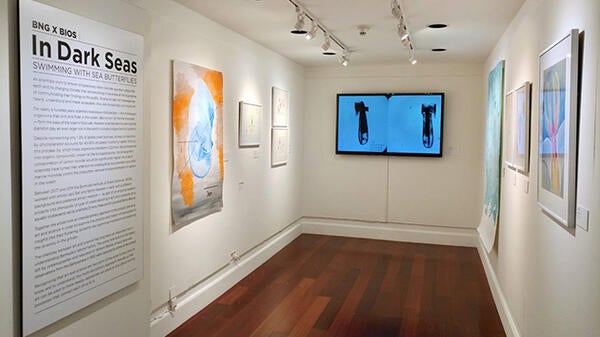
Two types of zooplankton will be featured at the Bermuda National Gallery (BNG) beginning this summer in a mixed-media exhibit dedicated to reminding us how art can be used to more deeply appreciate our place on this planet. Copepods, small marine crustaceans, and pteropods, tiny marine snails also known as “sea butterflies,” are the focus of this collaborative effort between BIOS and BNG. Some of the artists with works displayed in the series have spent time at BIOS working alongside zooplankton ecologists Leocadio Blanco-Bercial and Amy Maas as they investigate some of the ocean’s smallest and most critically important members of the marine food web.
